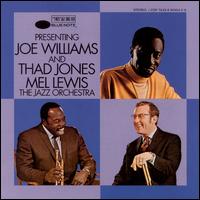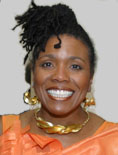Cannonball Adderley’s Big Man: The Legend of John Henry starring Joe Williams, Randy Crawford and Robert Guillaume
Yesterday, engrossed in an audio research project, I lost track of time. I was listening to Cannonball Adderley’s Big Man: The Legend of John Henry starring Joe Williams, Randy Crawford and Robert Guillaume. I hadn’t heard this two-disc LP in many years, having long ago retired my turntable. (For those of you too young to know, LP stands for “long playing” and refers to those old 12-inch vinyl records.) It’s never been released on CD, so I had a production house make a digital copy for me.
Big Man, conceived as a jazz opera, was released in 1975, shortly  after Cannonball’s untimely death. In the words of Nat Adderley, “Cannon considered Big Man one of the most important projects of his whole career. Since he had a pretty big career, you can get some idea of what it meant to him to compose the score for a full-scale musical play, and particularly this musical, dealing with a theme that has major significance for all Americans and particularly for all black Americans.”
after Cannonball’s untimely death. In the words of Nat Adderley, “Cannon considered Big Man one of the most important projects of his whole career. Since he had a pretty big career, you can get some idea of what it meant to him to compose the score for a full-scale musical play, and particularly this musical, dealing with a theme that has major significance for all Americans and particularly for all black Americans.”
My life as a publicist brought me in contact with all three stars. Joe Williams, who was my first retainer client, introduced me to his manager, John Levy. (Recently I mentioned John’s biography here). John had also been Randy’s manager at one time, and they remained friendly. Those of you who remember a television show called “Benson” will remember Robert well, but unless you saw him in Guys & Dolls (1976) or Phantom of the Opera (1990) you may not know that he was a wonderful song and dance man too, and that in 1959 he was part of Quincy Jones’ road tour of Harold Arlen’s jazz musical Free and Easy.
I first heard the Big Man recording in the early 1980s, and my memory of it was that it was wonderful! It sounded more like a Broadway musical than an opera. The bigger-than-life role suited Joe, Randy and Robert were also in good voice, the man-against-machine story was timeless, and the project was creative. In a way, I am glad that Cannonball did not live to read the reviews, because the jazz critics were not kind — “an eclectic hash” was one of the nicer descriptions. In their estimation, Cannonball, one of the jazz gods of his time, had done something that did not meet their jazz expectations. The Black press wasn’t very nice either.
Perhaps it was the innocence of youth, or more likely the fondness I had for the performers, that left me with such sweet recollections. Listening now with more seasoned ears, I might admit that Big Man is not the best musical show I’ve ever heard; the dialogue may be a bit thin and some sequences overly repetitious, but it has a few pretty songs (“I’m Gonna Give Lovin’ A Try” and “Stayin’ Place” among them), some good arrangements, it was entertaining, and the world is much richer for its existance.
Now I have friends who are critics, and they may take exception with me here, both about my opinion of Big Man and about my next statements. I believe it is unfair to expect artists, whatever their metier, to deliver one increasingly superior work after another. Nor do I think that an artist should have to stick within the confines of any one style or format, or even genre. I appreciate artists who stretch their creative muscles and take risks, even if I don’t particularly like the result. Sometimes the work truly falls flat, an experiement that didn’t work; other times a creation may be ahead of its time, not yet understood by its audience; and sometimes, just sometimes, magic happens and everyone knows it. It’s easy to be dismissive, and tempting to write clever barbs, so I appreciate critics who stretch themselves to provide constructive criticism that not only educates audiences but also encourages artists to grow. Now having said that publically, I have to acknowledge that I, myself, am too often guilty of substituting witty repartee for worthy reflection. I will try to do better.


 My favorite male singer has always been Joe Williams. I never got to hear him sing live with the Thad Jones-Mel Lewis Orchestra, but one of my favorite recordings from the days of yore was an early morning session they did with Joe in 1966. When I say early morning, I don’t mean the wee small hours — which might have been preferable as the band had been playing the night before until one or two o’clock in the morning. With a recording session just a few hours off, most of them didn’t bother to go home. They just hung out, had few drinks, ate some breakfast and showed up at the studio ready to play some more.
My favorite male singer has always been Joe Williams. I never got to hear him sing live with the Thad Jones-Mel Lewis Orchestra, but one of my favorite recordings from the days of yore was an early morning session they did with Joe in 1966. When I say early morning, I don’t mean the wee small hours — which might have been preferable as the band had been playing the night before until one or two o’clock in the morning. With a recording session just a few hours off, most of them didn’t bother to go home. They just hung out, had few drinks, ate some breakfast and showed up at the studio ready to play some more.  Have you ever heard of Nedra Wheeler? I can’t believe that I have not been aware of her until now, especially when I read her credits that include live and recorded performances with Ella Fitzgerald, Billy Higgins, Harper Brothers, Cedar Walton, Branford Marsalis, Billy Childs, and Stevie Wonder, to name just a few.
Have you ever heard of Nedra Wheeler? I can’t believe that I have not been aware of her until now, especially when I read her credits that include live and recorded performances with Ella Fitzgerald, Billy Higgins, Harper Brothers, Cedar Walton, Branford Marsalis, Billy Childs, and Stevie Wonder, to name just a few. after Cannonball’s untimely death. In the words of Nat Adderley, “Cannon considered Big Man one of the most important projects of his whole career. Since he had a pretty big career, you can get some idea of what it meant to him to compose the score for a full-scale musical play, and particularly this musical, dealing with a theme that has major significance for all Americans and particularly for all black Americans.”
after Cannonball’s untimely death. In the words of Nat Adderley, “Cannon considered Big Man one of the most important projects of his whole career. Since he had a pretty big career, you can get some idea of what it meant to him to compose the score for a full-scale musical play, and particularly this musical, dealing with a theme that has major significance for all Americans and particularly for all black Americans.” 